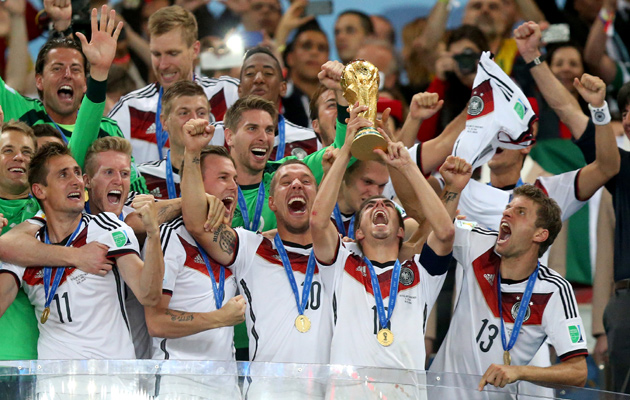Michel Platini, freed from any constraints over FIFA politics, will push for an extra World Cup slot for Europe.
The French president of UEFA set out that target as one of his priorities if, as expected, he is re-elected next spring for a third term at the head of the European federation.
Leaders of other confederations have stated an intention to press for a higher number of World Cup slots and have been encouraged in their pursuit by FIFA president Sepp Blatter.
Platini, early this year, had suggested mischievously that the only way to accommodate all the extra teams would be to expand the finals to 36 or 40 teams.
In Monte Carlo for a series of UEFA meeting and the club competitions draws he explained that his proposal had not been serious but rather a riposte to other confederations’ land-grab attempts.
However, he believed that Europe – as the home of Germany and Holland who had finished winners and third at the finals in Brazil – deserved to regain at least one if not two slots.
Asked if he were concerned at losing more European slots, he said: “I am not worried about future World Cup numbers because I have no intention of losing a place but only to ask for one more because ‘we’ are world champions.
“Now we have 13 teams in the finals and ideally we want to go back to 15 as we were in 1998 because we have proved to be leaders in the world. I will go back to the executive committee of UEFA and ask for support to ask for one team more. The other confederations do it – so we will do it.”
Platini freed himself to concentrate solely on European interests after confirming speculation that he will not be a candidate next year for the presidency of FIFA.
On other issues Platini reported himself delighted with the progress being made with UEFA’s financial fair play initiative.
His original concept was to force Europe’s clubs to balance their books with particular reference to the explosion in wages bills which – in some cases – outstripped general revenues.
English champions Manchester City are competing in the Champions League this season with a squad reduced from 25 to 21 players as a punishment for failing to adhere to the rules and regulations.
On the eve of the draw Platini said: “With financial fair play UEFA has shown that it can shoulder its responsibilities and that the set-up works.
“Since the introduction of financial fair play, the accumulated losses of European professional clubs has been reduced from €1.7bn to €800m which is more than half.
“This proves that we are on the right track and that we are moving from a vicious to a virtuous circle at the business model of most European clubs. The clubs are playing the game.”
Platini also claimed that ‘white elephant’ stadia were being rendered extinct within European football because of the pan-continental scheme for the 2020 European Championship. The group stage of the finals will be hosted in 13 cities across Europe to be chosen next month by the UEFA executive committee.
Platini described the project, unveiled during the 2012 finals in Poland and Ukraine, as “something revolutionary” because “it will not require major investments by states and taxpayers.”
The concept has gained in significance over the past two years as both world football and Olympic movements have come under pressure to review the high-cost demands made on host cities and countries for the so-called ‘mega events.’
Platini, looking ahead to 2020, said: “No more of those white elephants we have seen in the past. This is something exciting.”
UEFA’s attempts to reinvigorate national team football will be evident in the introduction of the ‘week of football’ scheduling which takes effect in the Euro 2016 qualifying competition which starts next week.
** Cristiano Ronaldo of Real Madrid and Portugal was voted UEFA Best Player of 2013-14 by an international media jury with Nadine Kessler of Wolfsburg and Germany winning the women’s prize.







